Doppler - Flow example
This is a little example of the flow used in Doppler to develop a feature. The git client used is GitExtensions.
If you are new on Doppler you have to follow the next steps:

-
Clone your previously forked Doppler repository
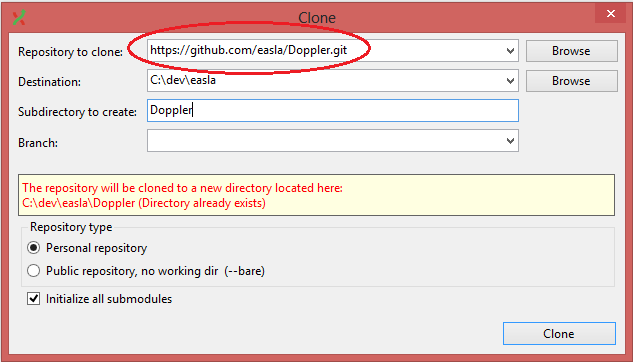
-
After the clone your local repo should look like this
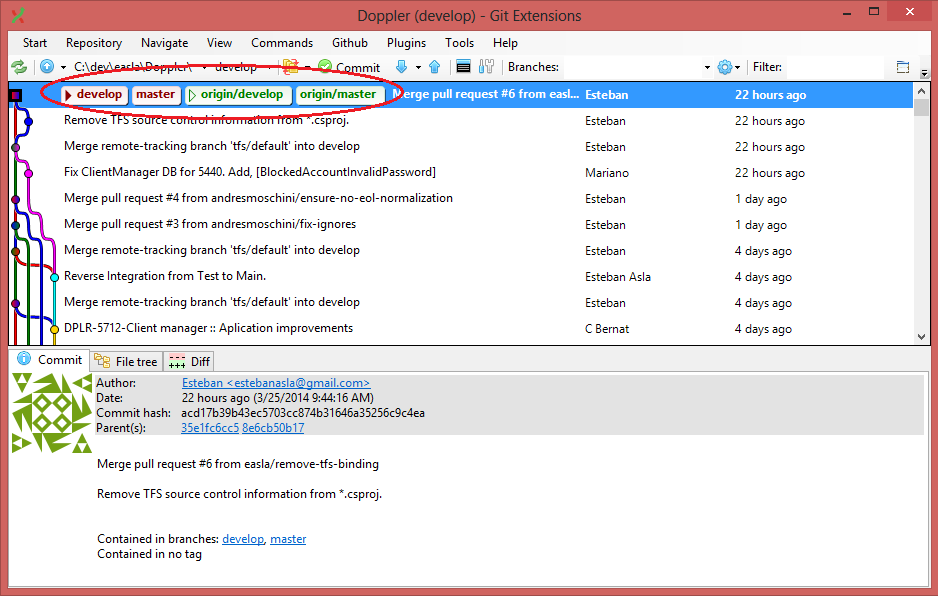
-
Then you have to add a remote repository named
upstreamby convention that is pointing to the main repository of Doppler.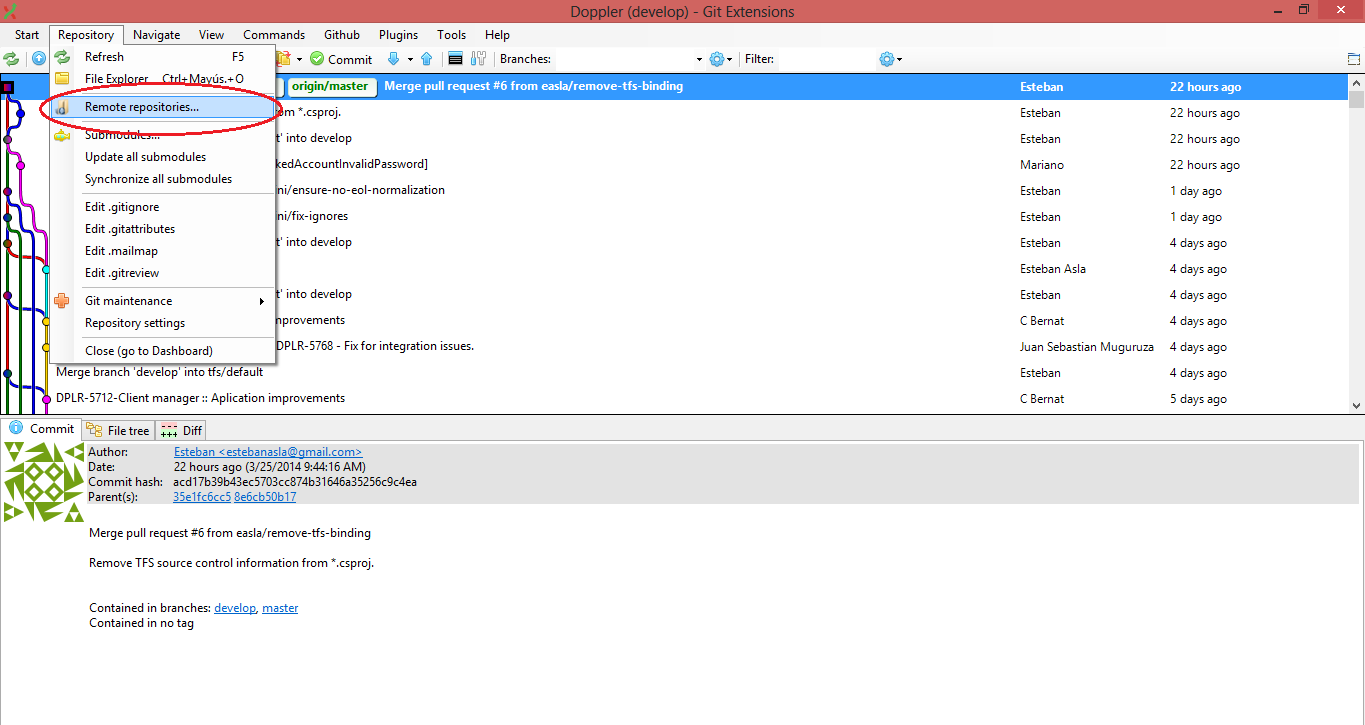
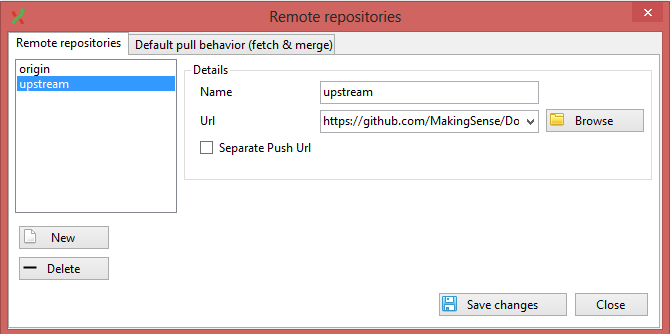
-
Then you have to fetch all the changes from that repository. You can do it with GitExtensions using the
fetch alloption or with the console typinggit fetch upstream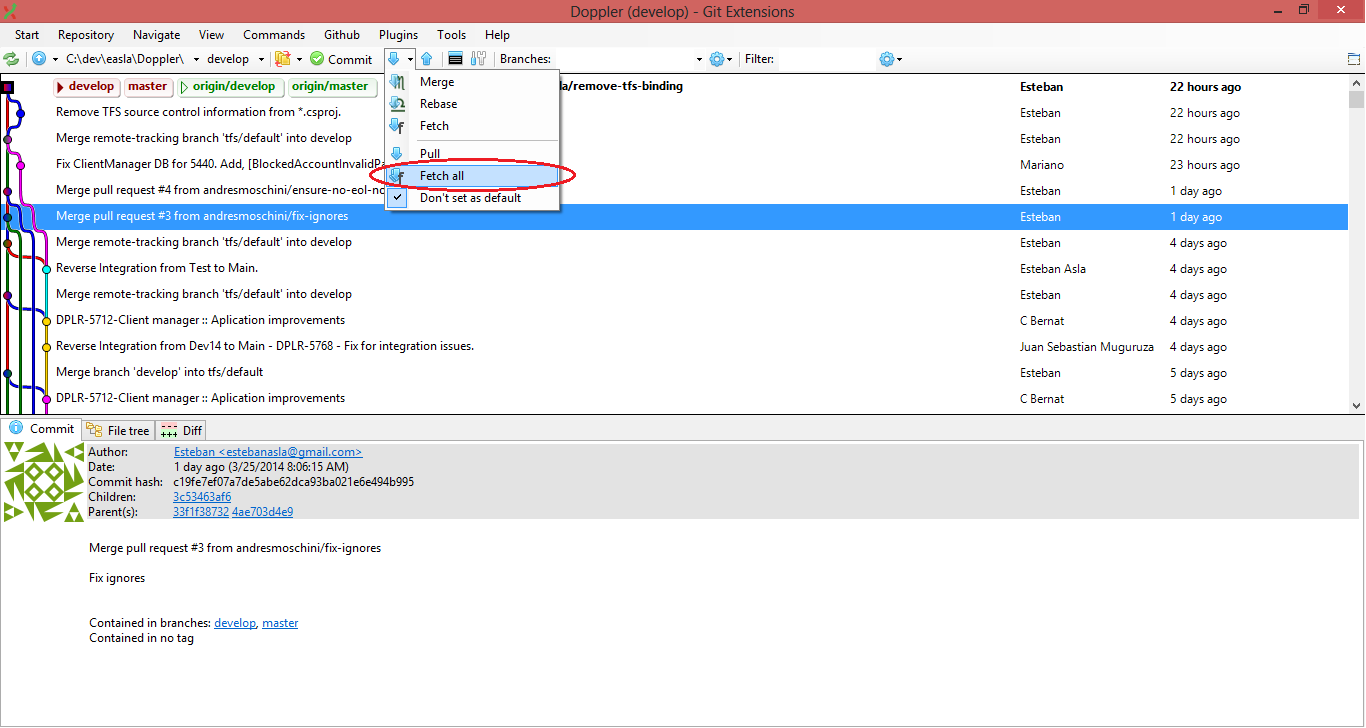
-
This is how your repository will looks like. At this moment all your branches are pointing to the same commit.

-
Now suppose that new changes on the main repository has been merged and you need to “update” your copy to see these changes locally. Well to do this, you will need to fetch the changes of upstream again. Because your
upstream/developis pointing to a new commit you have to link the two trees. This action could be done using:- A merge (fast forward). You have to click with the right button on the
upstream/developbranch and click on the option Merge into current branch. To do this, you have to checkout your local branch develop, in this case
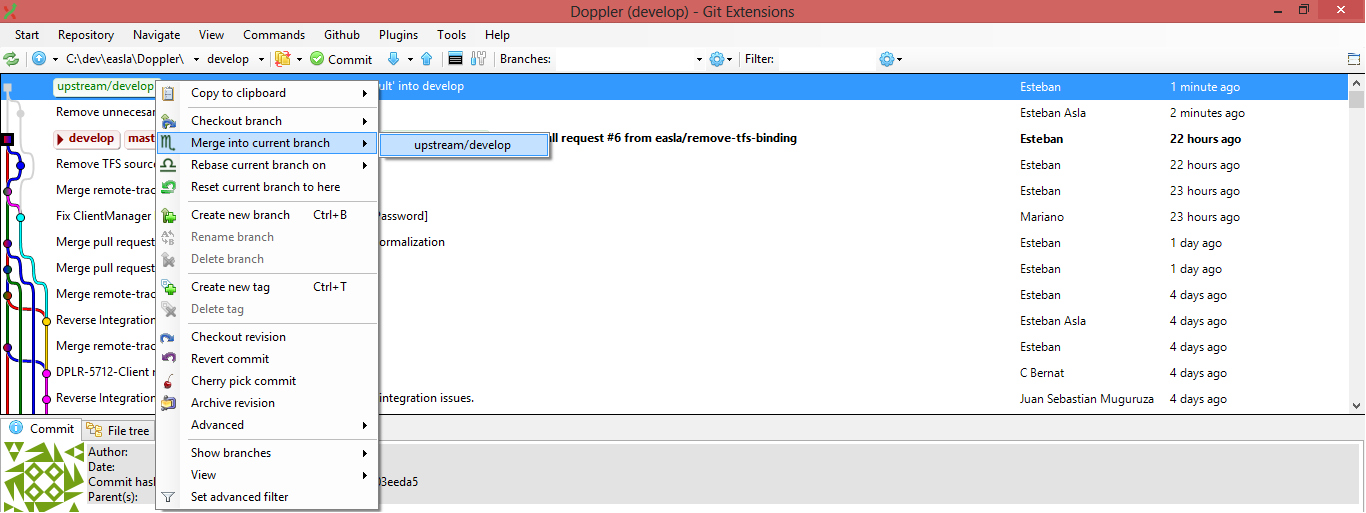
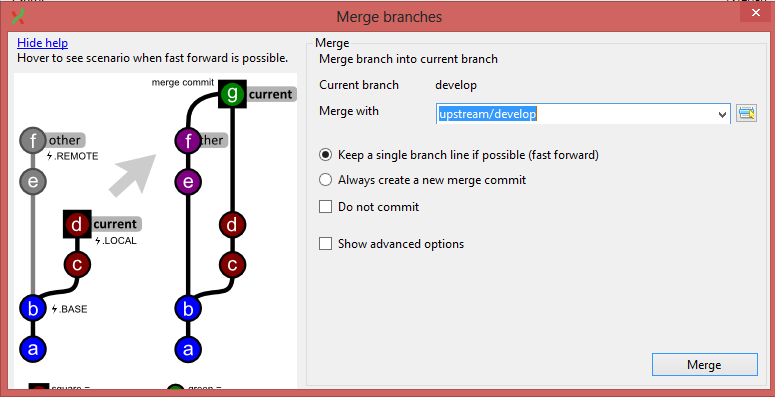
- A merge (fast forward). You have to click with the right button on the
-
If you need to update your remote copy of your repository
origin/develop(fork) you will need a push to your remote repository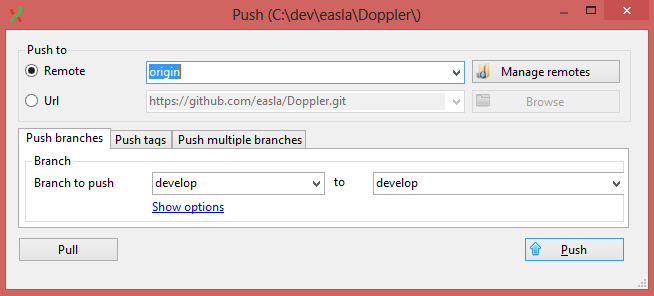
-
Your repository will looks like that
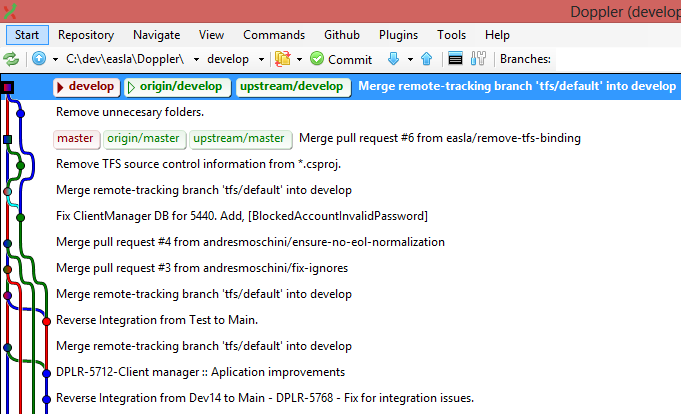
-
Now, suppose that you have to start to work on a story of the sprint. To do that and to follow our flow of work, you will need to create a branch with the ID of the issue en Jira and followed by a short name that describes the feature on which you will start to work. For example, for the DPLR-5783 which is a story, you should name the branch DPLR-5783-new-registration-flow. And for this DPLR-5850, which is a bug, we should use something like that DPLR-5850-fix-content-prepaid-plans. For this action, you don’t need to update your local repository (step 7). Only doing a fetch of your upstream, you can create a branch from
upstream/developwithout merge your local repositorydevelop.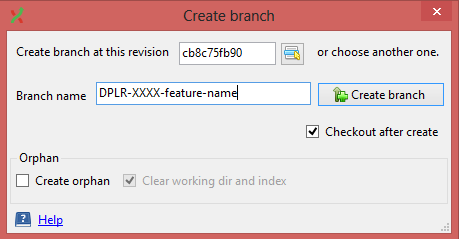
After some commits it will looks like something like this. Take into account that the changes are committed and pushed to. It would be desirable to use commit messages that follow this http://tbaggery.com/2008/04/19/a-note-about-git-commit-messages.html:

-
Once your changes are ready to be merged to the main repository, you have to go to github, to your copy repository (forked), for example, to https://github.com/easla/Doppler/ and then you have to do a Pull Request
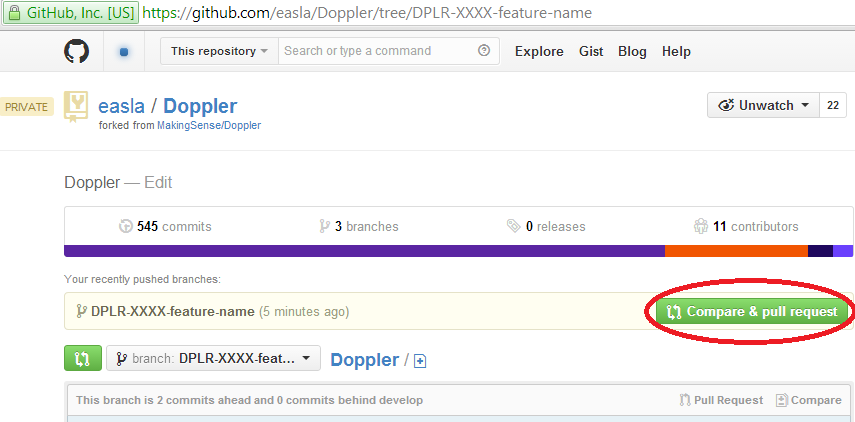
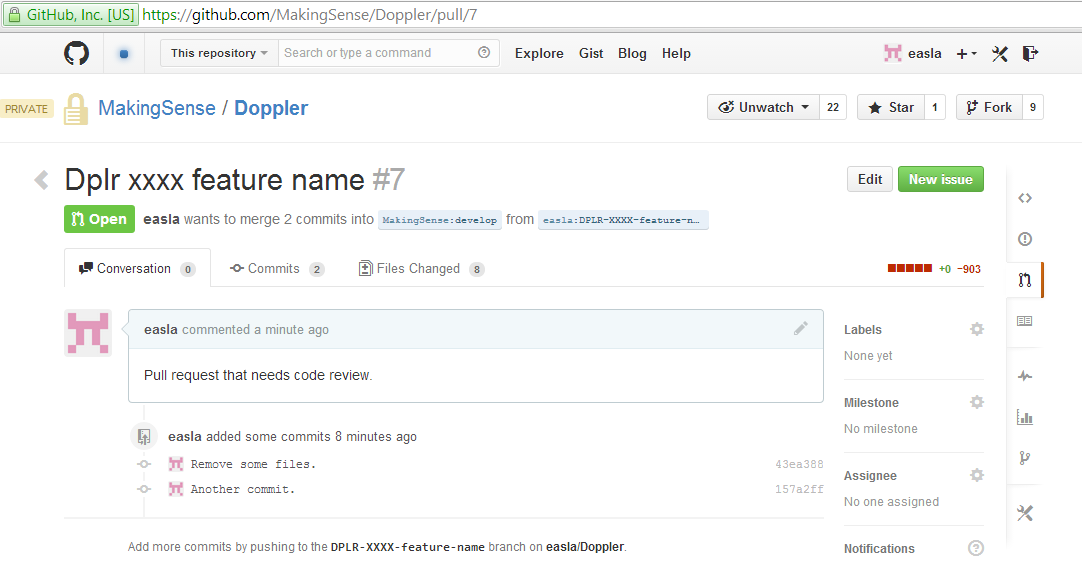
-
Then other developers make code reviews, looking the files changes in all commits that compounds the Pull Request. Comments on the code can be do for anyone who has access to the Doppler repository. In this case, the administrator reject the Pull Request because it contains a disallowed file deletion.
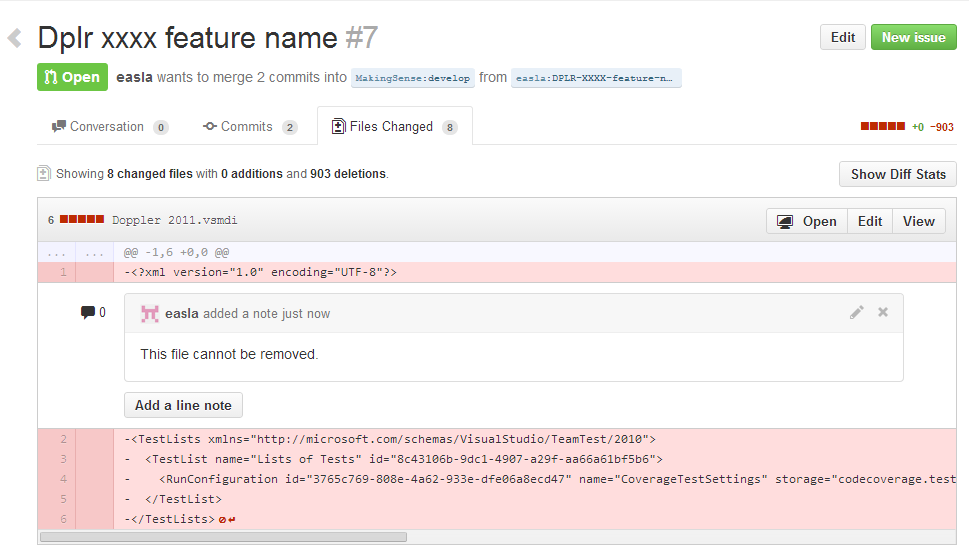
Add the missing file in other commit. The pull request is automatically updated and it will point to the this last commit.
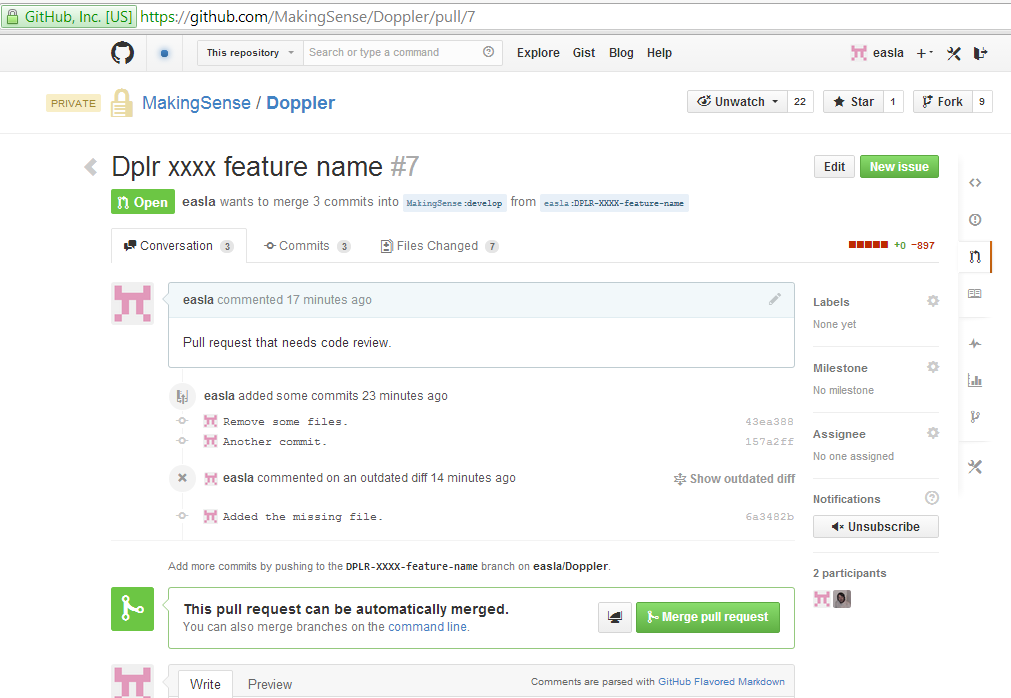
-
After all reviews and last pushed commit, Pull Request author merges the Pull Request.